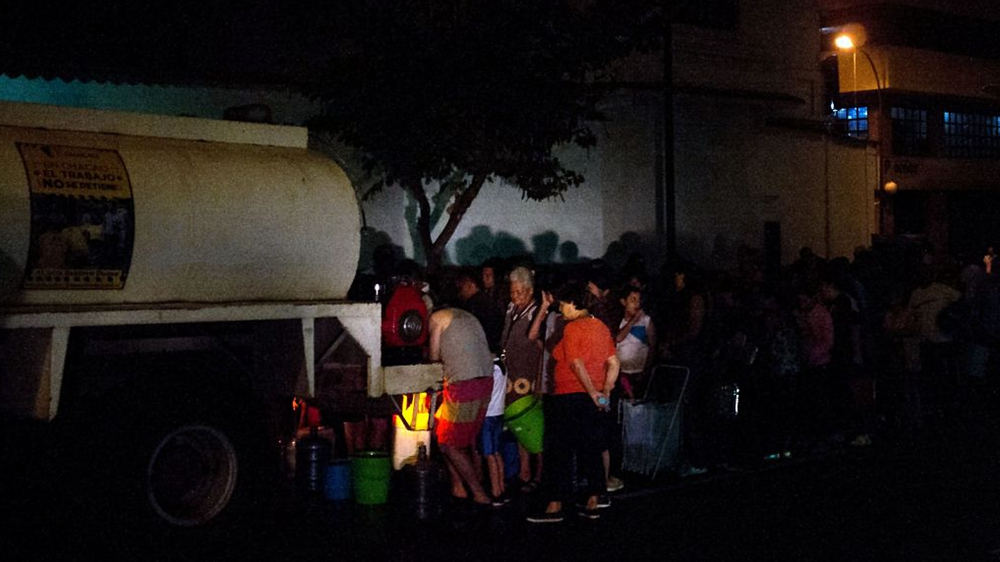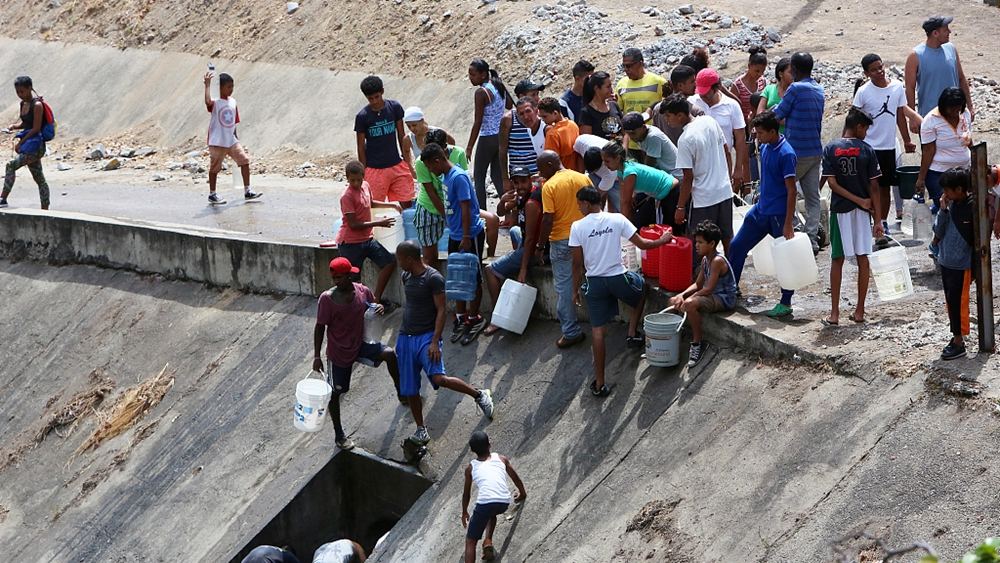
Latin America
13:55, 12-Mar-2019
Venezuelan congress declares 'national state of emergency' over blackout
Updated
14:41, 12-Mar-2019
CGTN

Venezuela's opposition-run congress on Monday declared a "national state of emergency" over a five-day power blackout that has crippled the country's oil exports and left millions of citizens scrambling to find food and water.
Much of Venezuela remained without power on Monday, although electricity had largely returned to the capital city Caracas following an outage that began last Thursday.
The outage has added to discontent in the country already suffering from hyperinflation and a political crisis after U.S. President Donald Trump supported opposition leader Juan Guaido the "interim president" in January. Maduro was inaugurated as the president earlier in the same month.
"Nothing is normal in Venezuela, and we will not allow this tragedy to be considered normal, which is why we need this decree of a state of alarm," said Guaido, who heads the legislature, during the session on Monday.
Oil exports had been halted for lack of power, cutting off the OPEC member country's primary source of revenue.
During the legislative session, Guaido called for a halt in shipments of oil to Maduro's political ally Cuba, which has received discounted crude from Venezuela for nearly two decades.
"We ask for the international community's cooperation to make this measure effective, so that the oil the Venezuelan people urgently need to attend to this national emergency is not given away," Guaido said.
The blackout has left food rotting in refrigerators, hospitals have struggled to keep equipment operating, and people have clustered on the streets of Caracas to pick up patchy telephone signals to reach relatives abroad.

Residents collect water from the Rio el Guaire after the water supply was suspended following a nationwide blackout in Caracas, March 11, 2019. /VCG Photo
Residents collect water from the Rio el Guaire after the water supply was suspended following a nationwide blackout in Caracas, March 11, 2019. /VCG Photo
On Monday, Venezuelans seeking water formed lines to fill containers from a sewage pipe.
Venezuela's electrical grid has suffered from years of under-investment. Restrictions on imports have affected the provision of spare parts, while many skilled technical personnel have fled the country amid an exodus of more than three million Venezuelans in recent years.
Winston Cabas, the president of an electrical engineers' professional association, told reporters that several of the country's thermoelectric plants were operating at just 20 percent of capacity, in part due to lack of fuel. He said the government was rationing electricity.
The process of restoring service was "complex" and could take between five and six days, he said.
Source(s): Reuters

SITEMAP
Copyright © 2018 CGTN. Beijing ICP prepared NO.16065310-3
Copyright © 2018 CGTN. Beijing ICP prepared NO.16065310-3